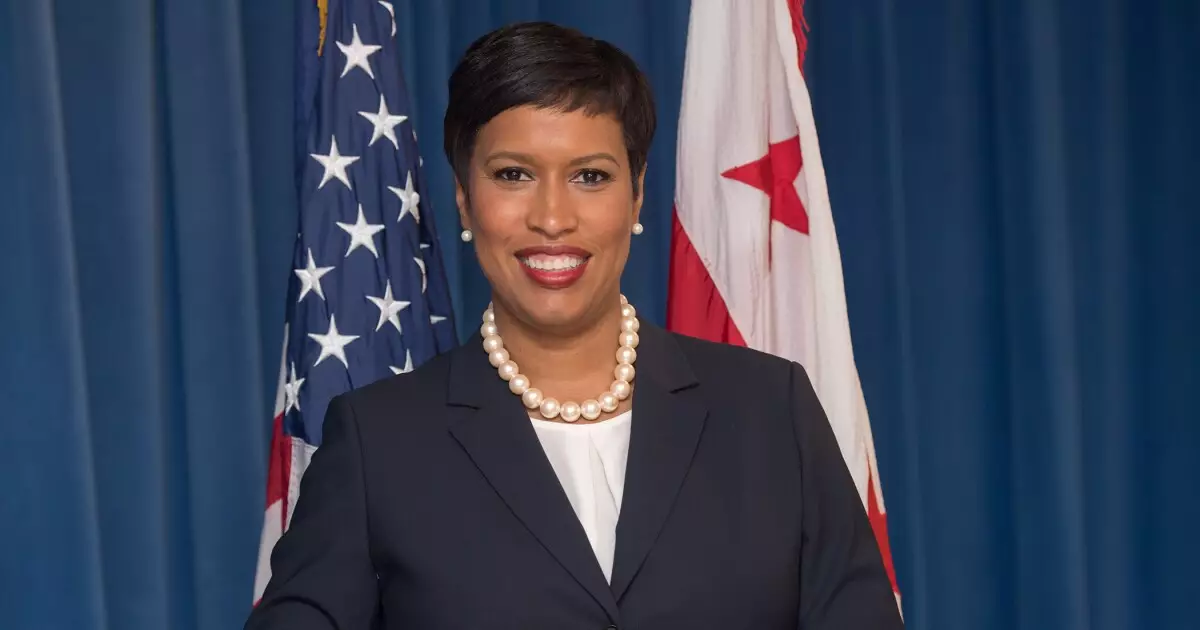Revitalizing D.C.’s Sports Infrastructure: An Ambitious Move for Economic Growth

In a significant development for the District of Columbia, the City Council has approved financial backing for a grand renovation of the Capital One Arena, alongside a firm commitment to upgrade the neighboring baseball stadium. This $515 million initiative stands as a crucial step for economic enhancement, spearheaded by D.C. Mayor Muriel Bowser who emphasizes that modernizing these facilities will not just bolster the entertainment options in the city but will also invigorate local businesses and the cultural environment in the heart of D.C.’s Chinatown.
This concerted effort aims to ensure that the city remains home to its beloved sports teams, including the Washington Capitals of the National Hockey League and the Washington Wizards of the National Basketball Association. The City Council’s decision not only addresses the physical upgrades to the arena but also hinges on significant community and economic development, which is a key talking point in Mayor Bowser’s agenda.
The scope of the renovation project is ambitious and multifaceted. As part of the plan, the city will acquire the arena from Monumental Sports & Entertainment for $87.5 million, subsequently leasing it back to the original ownership group as they contribute over $285 million towards the renovation costs. Mayor Bowser’s focus on ensuring that a substantial portion of the project’s contracts, with a target of at least 50% going to certified business enterprises, reflects a commitment to fostering local workforce development and inclusivity in economic opportunities.
Moreover, the renovation is projected to create almost 5,000 jobs over the three-year construction period. This not only speaks to the direct employment opportunities but also suggests a larger ripple effect on the local economy. Such endeavors could further catalyze business for local vendors, restaurants, and shops, thereby revitalizing an area that had begun to wane, especially after the pandemic.
However, the ambitious plans have not been without their hurdles. A previous pushback occurred in November when labor regulations concerning local hiring practices were contentious points in discussions. The necessity of incorporating local labor unions and firms into the project highlights the balance that city officials must strike between prudent fiscal policy and equitable employment practices.
The City Council’s resolve to adhere to these labor requirements could serve as a model for future infrastructure projects, potentially creating a template for economic frameworks that prioritize both development and community engagement. This intersection of city policy with labor regulations underscores the complexity of urban planning in a rapidly changing environment.
Additionally, the City Council’s plans extend beyond the immediate financial apparatus. It enforces that the Capitals and the Wizards will remain in Washington D.C. through at least 2050, effectively eliminating any looming threat of relocation to a proposed new venue in Alexandria, Virginia. This long-term commitment not only fortifies the teams’ presence but also ensures that the venue remains a central hub for entertainment and sports, which is vital for the city’s cultural fabric.
Furthermore, the initiative includes the establishment of dedicated funding for Nationals Park, aiming to sustainably manage finances from revenue surpluses. This strategy showcases a forward-thinking approach to managing public funds while mitigating potential financial pitfalls often associated with major infrastructural projects.
A pivotal element of the plan includes the negotiation for control of the currently inactive RFK Stadium site, which could potentially house the Washington Commanders of the National Football League. The stadium’s future renovation promises a mixed-use development that could dramatically alter the landscape of Capitol Hill. Moreover, the congressional hurdles associated with this transition from federal control to district oversight illustrate the complicated political interactions at play, but a recent momentum within Senate discussions hints at a plausible path forward.
The D.C. City Council’s plans represent a comprehensive effort to not only enhance sporting facilities but rejuvenate the local economy while addressing urban planning challenges. The multi-faceted strategy laid out by city officials encapsulates a forward-thinking vision aimed at bolstering D.C. as a thriving hub for sports and commerce, ultimately enhancing the quality of life for its residents and visitors alike.





